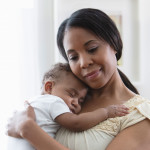More than 40 percent of those people with HIV surveyed in a recent large study said they might want to have children in the future, Healio reports.
Publishing their findings in Open Forum Infectious Diseases, researchers surveyed individuals in the ACTG Study 5257, which enrolled participants between May 2009 and June 2011. This Phase III randomized, open-label trial is studying three modern ARV regimens among men and women age 18 and older who had not yet taken HIV treatment upon entry and who enrolled at 57 sites throughout the United States.
The current analysis of 1,425 participants included all the men who responded to surveys as well as all women age 45 and younger who did so. Seventy percent (992) were men who have sex with men (MSM), 17 percent (244) were women and 13 percent (189) were men who have sex only with women (MSW). Thirty-nine percent of the individuals were Black, 36 percent were white and 22 percent were Latino. The median age was 36, and 50 percent of the participants were between ages 28 and 44.
Upon starting ARVs and again after 95 weeks of treatment, the participants were asked whether they might want children in the future. Overall, a respective 42 percent and 41 percent of the participants responded “yes” to this question at the two time points. At the study’s outset, 42 percent of MSM, 37 percent of MSW and 43 percent of women said they might want children in the future. At the 96-week point, a respective 41 percent, 37 percent and 43 percent of each group reported the same.
Factors associated with a greater likelihood of reporting possibly wanting children included being 30 years old or younger, being Black, having more than a high school degree and not having any children. There was no association between an interest in having children and CD4 count, viral load or the participants’ perception of their own infectiousness.
To read the Healio article, click here.
To read the study abstract, click here.







3 Comments
3 Comments